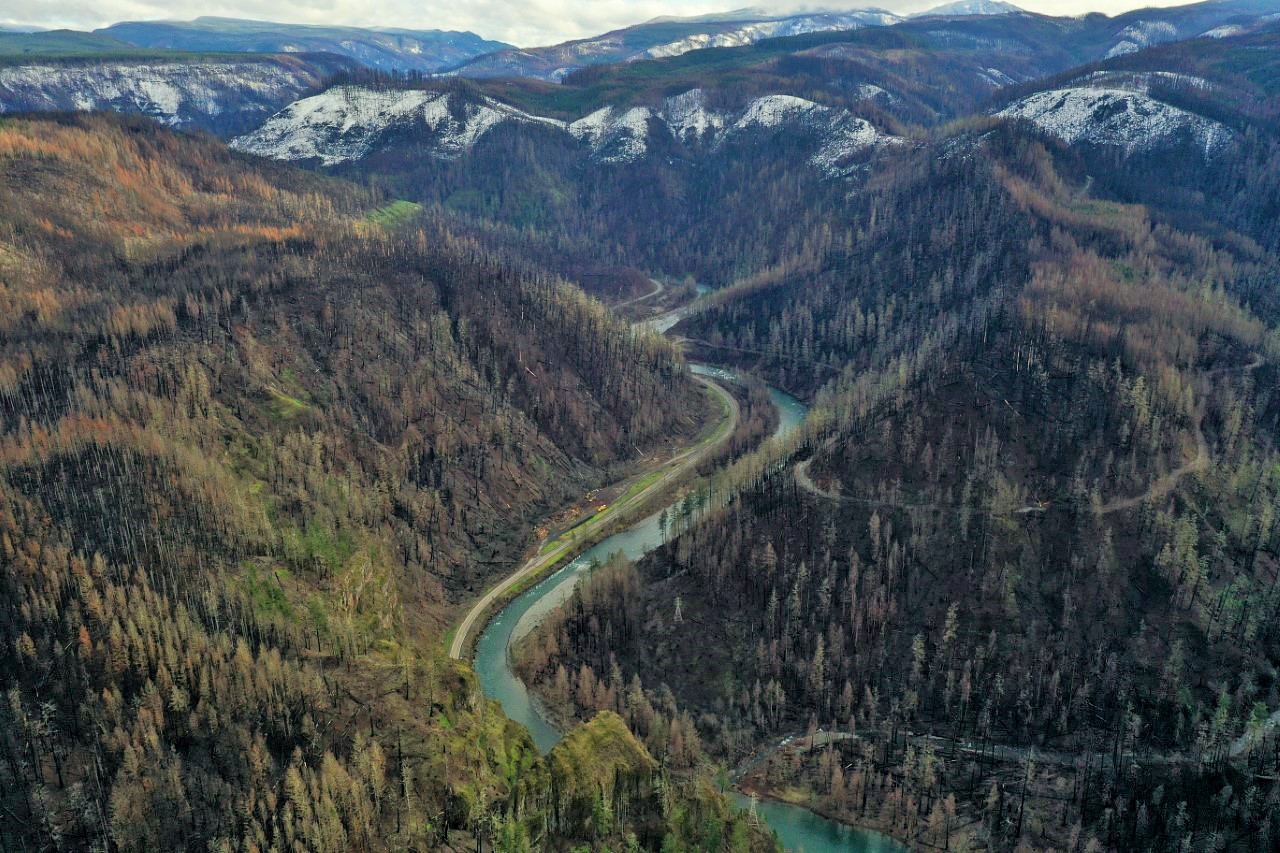Action Alert: Clackamas River at a Crossroads

The Clackamas River canyon has been closed since the 2020 Riverside Fire burned through the watershed, making a difficult year harder for communities who rely on access to the forest for their economic or emotional well-being, cultural tradition, or recreation.
For almost a year, Bark has kept a close eye on Mt. Hood National Forest’s post-fire roadside danger tree removal process, which will allow public access back into the 2020 Riverside Fire closure area once it is completed. From the project’s start, we have urged the agency to be thorough in considering the environmental and social tradeoffs of cutting trees along popular routes and evaluate the impact of extensive tree cutting in order to reopening some lesser needed roads.
Act now to help shape the future of the Clackamas watershed.
In response to a robust public discourse, as well as recent court rulings for the Willamette National Forest, the Mt. Hood National Forest has opened a new public comment period on the Clackamas Fires Roadside Danger Tree Assessment to analyze the effects of roadside tree logging and take a hard look at how the current road system could be changed to better reflect the socioecological conditions of 2022. These comments are due on February 1st.
The Forest Service has dealt with many obstacles in reopening the forest. Bark applauds their commitment to do a full environmental analysis of the current road system and proposed roadside logging. The Forest Service has an opportunity to reexamine the ecological impacts of forest roads that are increased by recent fires, especially with regards to salmon and drinking water. The forest road system is oversized, and the Forest Service currently does not have funding to maintain even a quarter of this system annually. Reducing this road network while maintaining access to beloved public places could address economic and ecological challenges the agency faces.
Submit your comment and help shape the future of the Clackamas watershed.
The Clackamas River is at a critical turning point in its ecological and cultural history. Having been on the ground this past year since the fire, I can tell you that it is a changed landscape, and many places will not appear how people remember. While this may be difficult to accept, we must remember what this place has given us over the years and return that gift by participating in the process to shape its future with patience, creativity, and humility.
For the river,
Michael Krochta, Bark Forest Watch Director
P.S. Bark is hiring a Development Coordinator to join our team! Learn more about the position here and share it with your people.